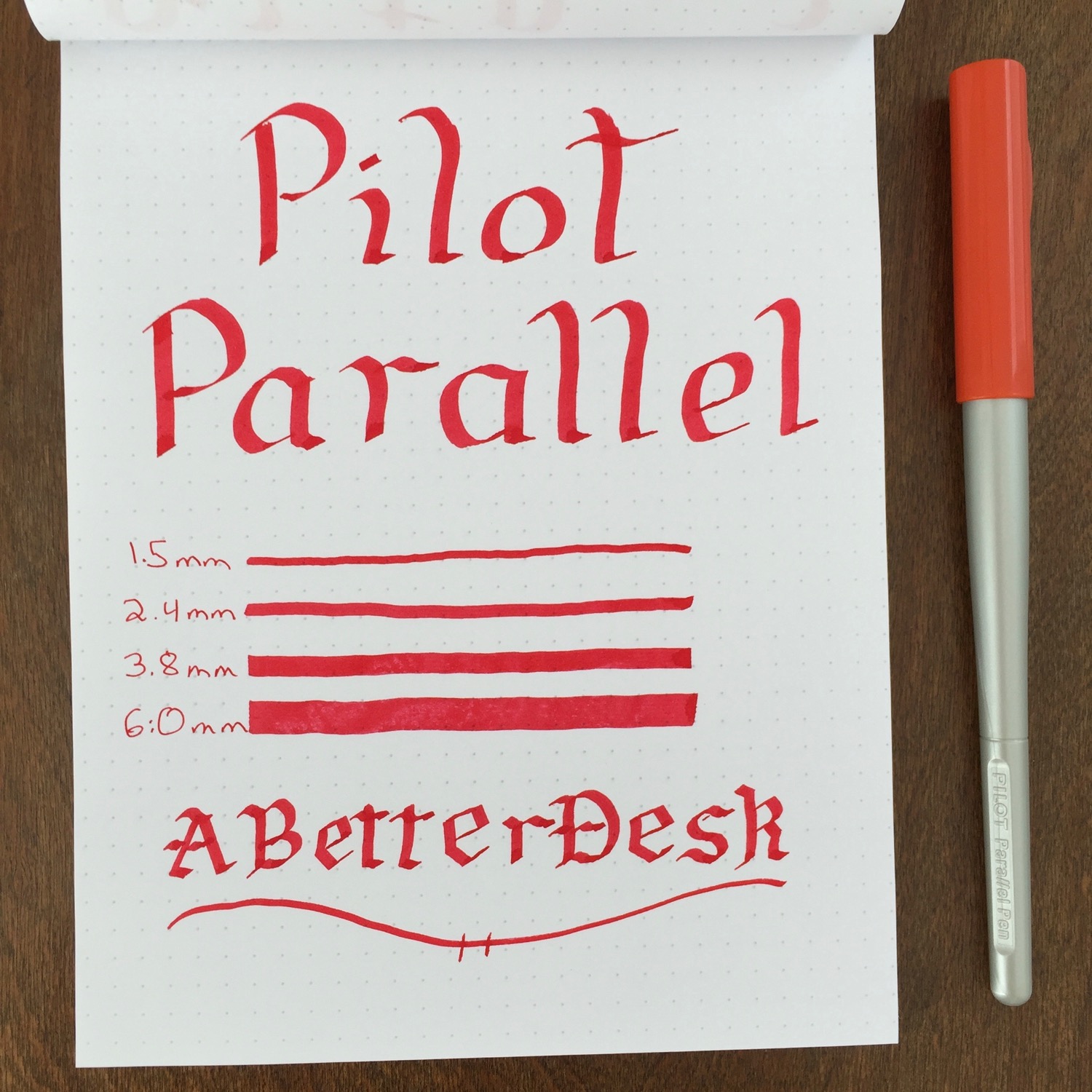The Pilot Parallel is an inexpensive calligraphy pen that's great for getting started with calligraphy without spending a small fortune. I stumbled upon these pens while looking for a cheap pen for testing inks, and they are exactly what I was looking for. The full Pilot Parallel pen set can be found for less that $30 on Amazon and comes with four pens with 1.5, 2.4, 3.8, and 6mm nib sizes.
Each Pilot Parallel pen comes with two mixable ink cartridges, a nib cleaner, bulb syringe for cleaning, and calligraphy guide. The pen is made of plastic and twists apart for easy ink cartridge replacement, like most standard cartridge fountain pens. The Parallel's cap is threaded and caps securely. Its very lightweight plastic body lacks a clip and resembles a paintbrush handle. The pen looks and feels like a $10 pen, but its performance makes up for the cheap first impressions.
The nib of the Pilot Parallel is easily the most interesting part of the pen. The nib is made of two parallel plates, with serrated edges that allow ink to flow out of the tip of the nib. This varies from the standard fountain pen nib design, where the nib sits atop an ink feed that keeps the nib inked. It takes a bit of coaxing to get the ink to flow through the Parallel's feed at first, but the transparent feed gives a good indication of the ink's progress as it approaches the nib. I typically have to tap the nib on paper to get the ink flowing through all of the nib slits, but flow is steady once it gets going.
Pilot states that its Parallel pen is only to be used with the included calligraphy inks, which are very wet. I bought the pens for ink testing, so I was relieved to find that they work with with standard fountain pen inks as well. Wetter inks perform the most consistently, and dryer inks take a bit work to get them to flow through the nib. These pens lay a ton of ink on the page, so be sure to use a higher quality paper to reduce ink feathering. This also means that the pens burn through ink very quickly.
Instead of wasting money on a Pilot converter, I reuse the empty Parallel ink cartridges. These hold a large amount of ink and have a ball bearing agitator that keeps ink from building up in the tip of the cartridge. The cartridges are very easy to clean by flushing with a standard medical syringe. The Pilot Parallel can also be converted to an eye dropper filler with a huge ink capacity, since the body of the pen is sealed. I'm still not brave enough to try this, but it should be fairly easy to do by filling the pen body with ink and adding a bit of silicon grease to the threads for a good seal.
The Pilot Parallel comes with a sheet for cleaning the grooves of the nib as well as a customized bulb syringe for cleaning. The pens takes substantial flushing to clean, but the provided tools really help make the process easier.
I initially purchased a set of Pilot Parallel pens for ink testing, but I find myself dabbling more and more with calligraphy. These pens are a lot of fun to use and are so inexpensive that I have no qualms about throwing the pens in my bag or playing around with different inks. The 2.4mm pen is my favorite of the bunch, and the nib is just the right size for my A5 Rhodia DotPad and Midori Traveler's Notebook. The Pilot Parallel Calligraphy Pen is a fantastic find, and I'm glad that I gave it a shot.






